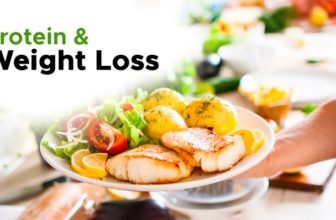Healthy Weight Loss: Discover how to lose weight the healthy way with balanced eating and smart exercise. Get easy, practical tips to burn fat, boost energy, and stay consistent—no crash diets needed!
Eat and Exercise Your Way to Healthy Weight Loss
Ever wonder why your weight won’t budge no matter how hard you try?
Maybe you’re working out a lot or eating less. But the scale just won’t move. You’re not alone. Weight loss isn’t about extremes. It’s about finding a balance.
You don’t need a special diet or a trainer to lose weight. This guide will show you how to eat smart and move intentionally. You’ll reach your goals without feeling bad.
What Is Healthy Weight Loss?
Healthy weight loss is losing 1–2 pounds a week. It’s not about crash diets or too much exercise. It’s about making habits that help your body.
Why does this matter?
Quick fixes can lead to yo-yo dieting. But a balanced approach helps you succeed for the long term.
The Basics of Weight Loss: Calories In vs. Calories Out
Weight loss is simple:
Burn more calories than you consume.
But your body isn’t just math. Hormones, sleep, stress, and activity levels affect calorie use. Yet, a calorie deficit is key for fat loss.
Here’s how it works:
| Action | Effect |
|---|---|
| Eat fewer calories | Creates a calorie deficit |
| Burn more through exercise | Boosts calorie burn |
| Do both | Speeds up fat loss sustainably |
Don’t Just Eat Less—Eat Better
Don’t starve yourself. Eat foods that fuel your body without overloading it.
Focus on nutrient-dense foods like:
- Lean proteins: chicken, turkey, tofu, eggs
- Whole grains: oats, brown rice, quinoa
- Healthy fats: avocado, nuts, olive oil
- Fiber-rich fruits and veggies: berries, broccoli, spinach, apples
These foods keep you full, support muscle, and give you vitamins and minerals.
The Power of Protein in Weight Loss
Protein is your secret weapon. It keeps you full and helps build and maintain muscle. This is important when you’re losing fat.
Aim for:
- 0.6 to 1 gram of protein per pound of body weight
- Include a source of protein at every meal
Easy protein-packed snacks:
- Greek yogurt
- Hard-boiled eggs
- Protein shakes
- Jerky
- Cottage cheese with fruit
Why Fiber Is Your Friend
Fiber makes you feel full without adding lots of calories. It also helps your digestion and keeps your blood sugar balanced.
Great fiber sources:
- Lentils
- Chia seeds
- Berries
- Sweet potatoes
- Whole grain bread
Try to get at least 25–30 grams of fiber daily for the best results.
Don’t Fear Carbs—Just Choose Smart Ones
Carbs aren’t bad. In fact, your body needs them for energy, more so if you’re active.
Choose:
- Whole grains over white bread
- Brown rice over white rice
- Sweet potatoes over fries
Avoid sugary drinks and processed snacks. They raise your blood sugar and make you want more.
Hydration: The Weight Loss Hack Most People Forget
Sometimes, your body thinks it’s hungry when it’s really thirsty. Drinking water keeps your metabolism going and reduces bloating.
Pro Tip: Drink a glass of water before meals. It can stop you from eating too much.
Aim for:
- At least 8 cups (64 oz) of water a day
- More if you’re sweating from workouts
Meal Planning for Weight Loss
Planning your meals saves time, cuts calories, and stops you from grabbing unhealthy snacks.
Simple meal prep tips:
- Cook proteins in bulk (grill chicken, hard-boil eggs)
- Portion out snacks in advance
- Keep healthy grab-and-go options ready (fruit, nuts, protein bars)
Need a formula?
Try this plate method:
| Plate Portion | What to Add |
|---|---|
| ½ plate | Veggies |
| ¼ plate | Lean protein |
| ¼ plate | Whole grains or starches |
| 1 tbsp | Healthy fat (olive oil, avocado) |
Exercise: Your Fat-Burning Ally
You don’t need to spend hours in the gym—but you do need to move. Exercise burns calories, builds muscle, and boosts your mood and energy.
Best types of exercise for weight loss:
- Strength training (3–4x a week): Builds muscle, boosts metabolism
- Cardio (2–3x a week): Walking, biking, swimming, HIIT
- Everyday movement: Steps, stretching, cleaning—it all adds up
Strength Training: Why It’s a Must
Lifting weights won’t make you bulky. It helps you lose fat while keeping your body toned. Muscle burns more calories than fat does.
Start with bodyweight moves like:
- Squats
- Push-ups
- Lunges
- Planks
Then, add dumbbells or resistance bands as you get stronger.
Cardio: Burn Calories and Boost Heart Health
Cardio makes your heart work hard and helps you lose fat. But, too much cardio can burn muscle if you don’t eat enough.
Try:
- Brisk walks
- Jogging
- Cycling
- Dancing
- Jump rope
Even 20–30 minutes a few times a week makes a big difference.
NEAT: The Secret Sauce of Fat Loss
NEAT stands for Non-Exercise Activity Thermogenesis. It’s all the movement you do that’s not a workout—like walking your dog, pacing while on calls, or cleaning.
It might not sound like much, but it can help you burn hundreds of calories a day without even trying.
Ways to boost NEAT:
- Take the stairs
- Park farther away
- Do chores with energy
- Walk during calls
Rest and Recovery Matter Too
Working out is great, but recovery is when your body actually builds muscle and burns fat efficiently.
- Sleep at least 7–8 hours a night
- Take rest days—if you’re lifting or doing high-intensity workouts
- Stretch and hydrate to keep soreness at bay
Managing Stress = Managing Weight
Stress raises cortisol, a hormone that can make you crave sugar and store belly fat. If you’re always wired or anxious, your body holds onto weight.
Ways to manage stress:
- Deep breathing or meditation
- Journaling
- Walks in nature
- Talking to a friend
- Getting quality sleep
Your mental health directly affects your physical health—so don’t skip this part.
Tracking Progress Without the Scale
That number on the scale isn’t everything. It can change for lots of reasons—water, hormones, sodium, etc.
Better ways to track success:
- Take progress photos
- Measure your waist or hips
- Notice how your clothes fit
- Track energy levels and strength
Consistency Beats Perfection
You don’t have to be perfect to see results—you just have to be consistent. If you mess up one meal or miss a workout, don’t quit. Just get back on track.
Think of it like brushing your teeth—you do it daily, not perfectly.
Your Game Plan for Healthy Weight Loss
Let’s wrap it all up with some clear, doable steps:
Eat Smart:
- Fill your plate with real, whole foods
- Prioritize protein and fiber
- Drink water before meals
- Plan your meals and snacks
Move More:
- Strength train 3–4x a week
- Add fun cardio 2–3x a week
- Increase everyday movement
- Don’t forget rest and recovery
Stay Balanced:
- Sleep well
- Manage stress
- Track progress in multiple ways
- Be kind to yourself
Final Thoughts
Healthy weight loss isn’t about punishing your body. It’s about fueling it right and moving with purpose. There’s no magic pill or overnight fix. But with small, consistent changes, you’ll build habits that stick. And honestly? That’s what real success looks like.
FAQs
1. How fast should I expect to lose weight?
A healthy rate is about 1–2 pounds per week. Faster isn’t always better—it can lead to burnout or muscle loss.
2. Can I lose weight without exercise?
Yes, but it’s harder. Diet is the main factor, but movement boosts results and keeps your body strong.
3. Do I need to cut out carbs?
Nope! Carbs are not the enemy. Just choose whole, unprocessed carbs and watch your portion sizes.
4. What’s the best time to work out for weight loss?
The best time is when you’ll actually stick to it. Morning, afternoon, or evening—all work as long as you’re consistent.
5. Why am I not losing weight even though I’m eating healthy and working out?
It could be stress, sleep, hormones, or hidden calories. Track your habits closely, and if needed, talk to a doctor or nutritionist.
Sources:
- Harvard Health: Healthy Weight Loss
- CDC: How to Lose Weight Safely
- Mayo Clinic: Weight Loss Basics





